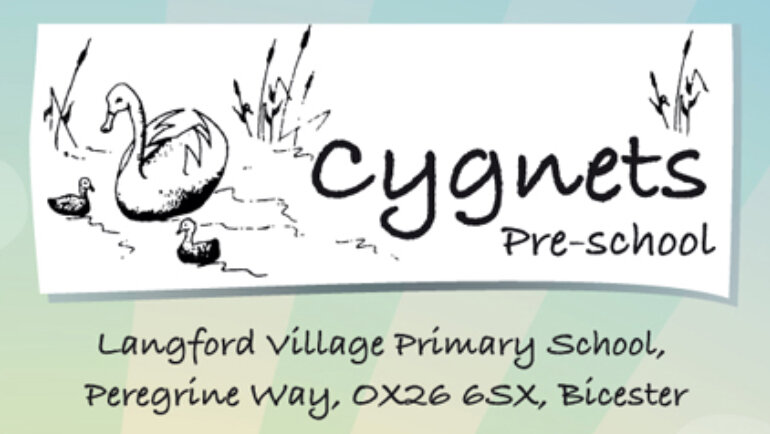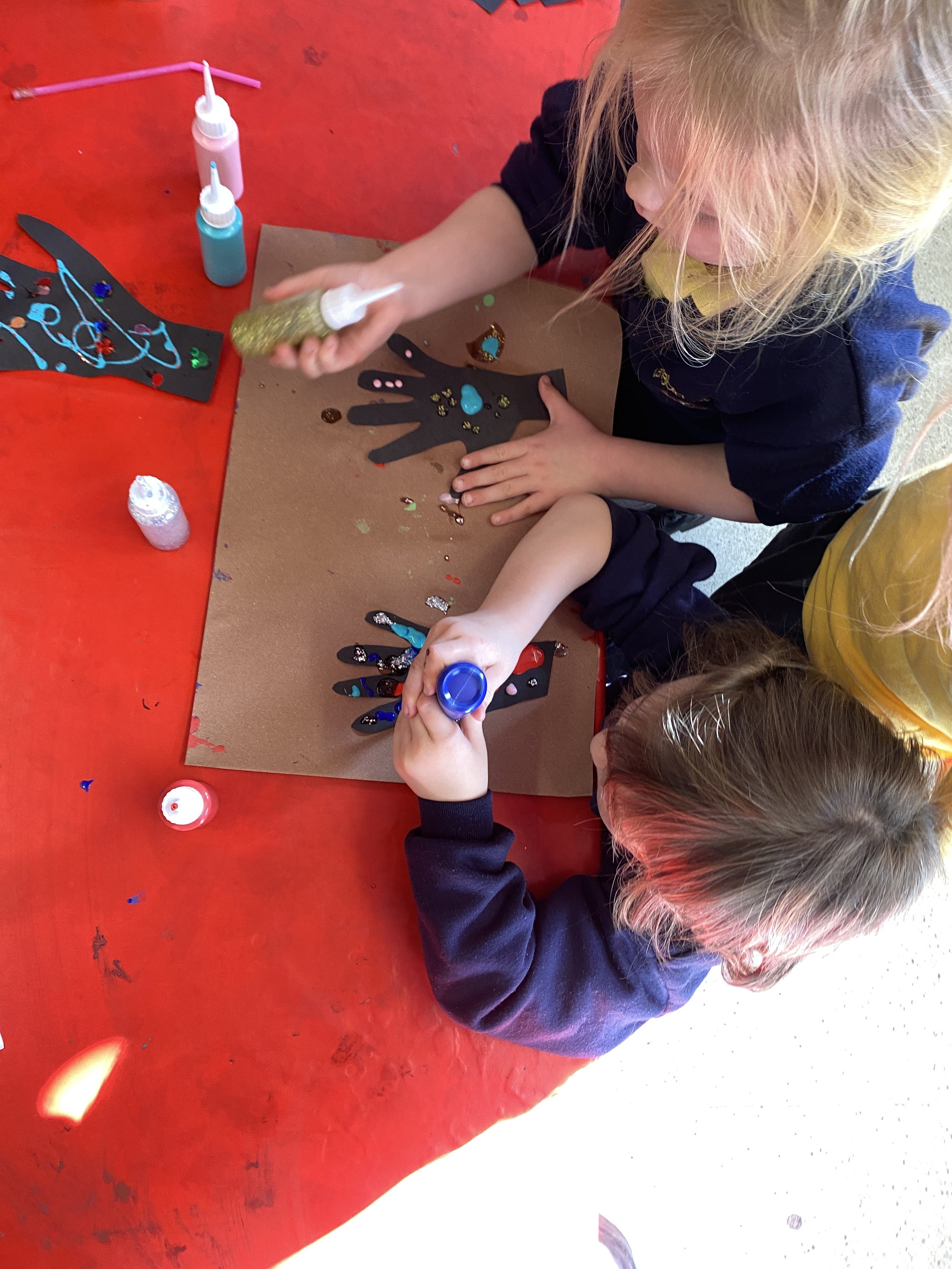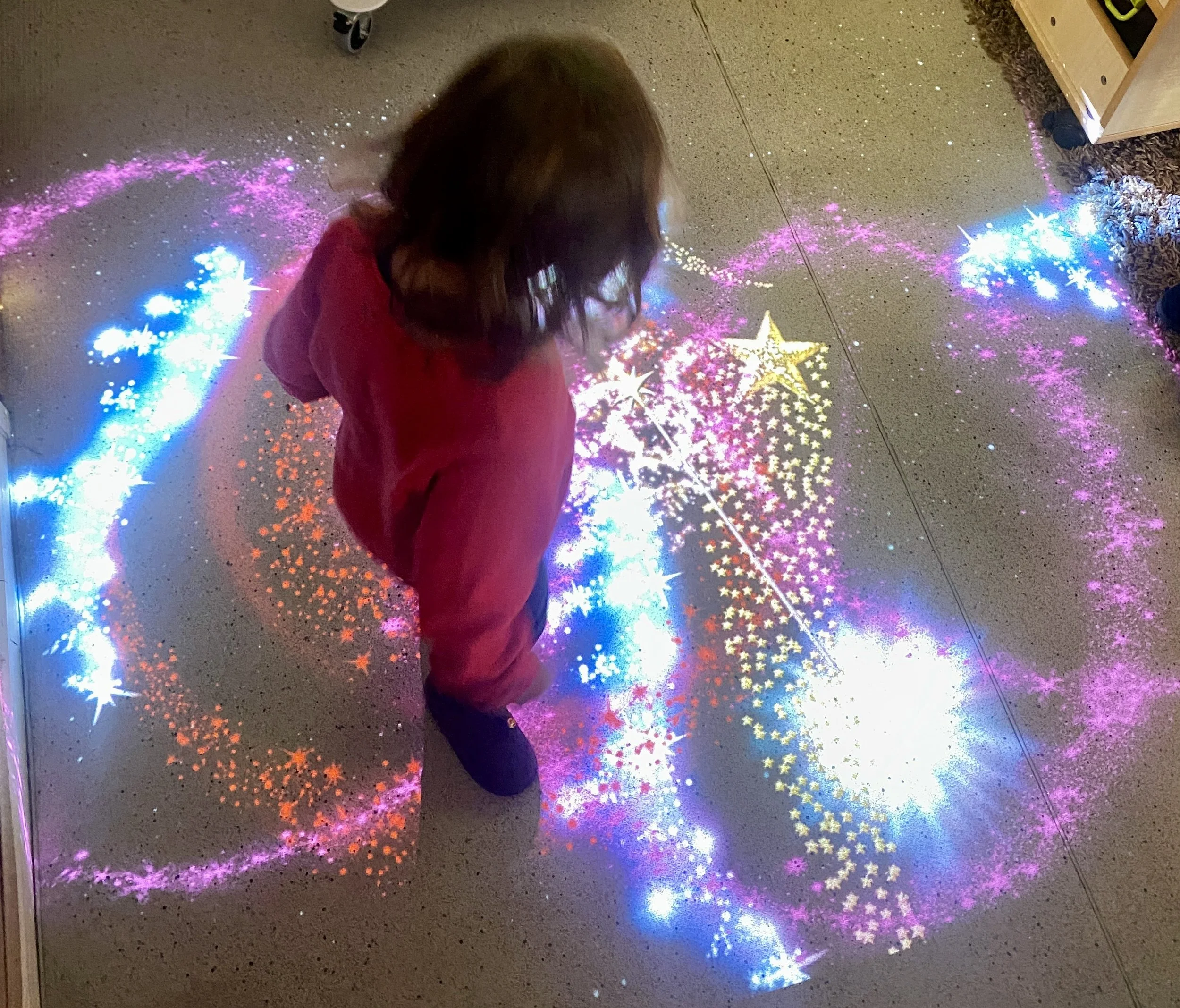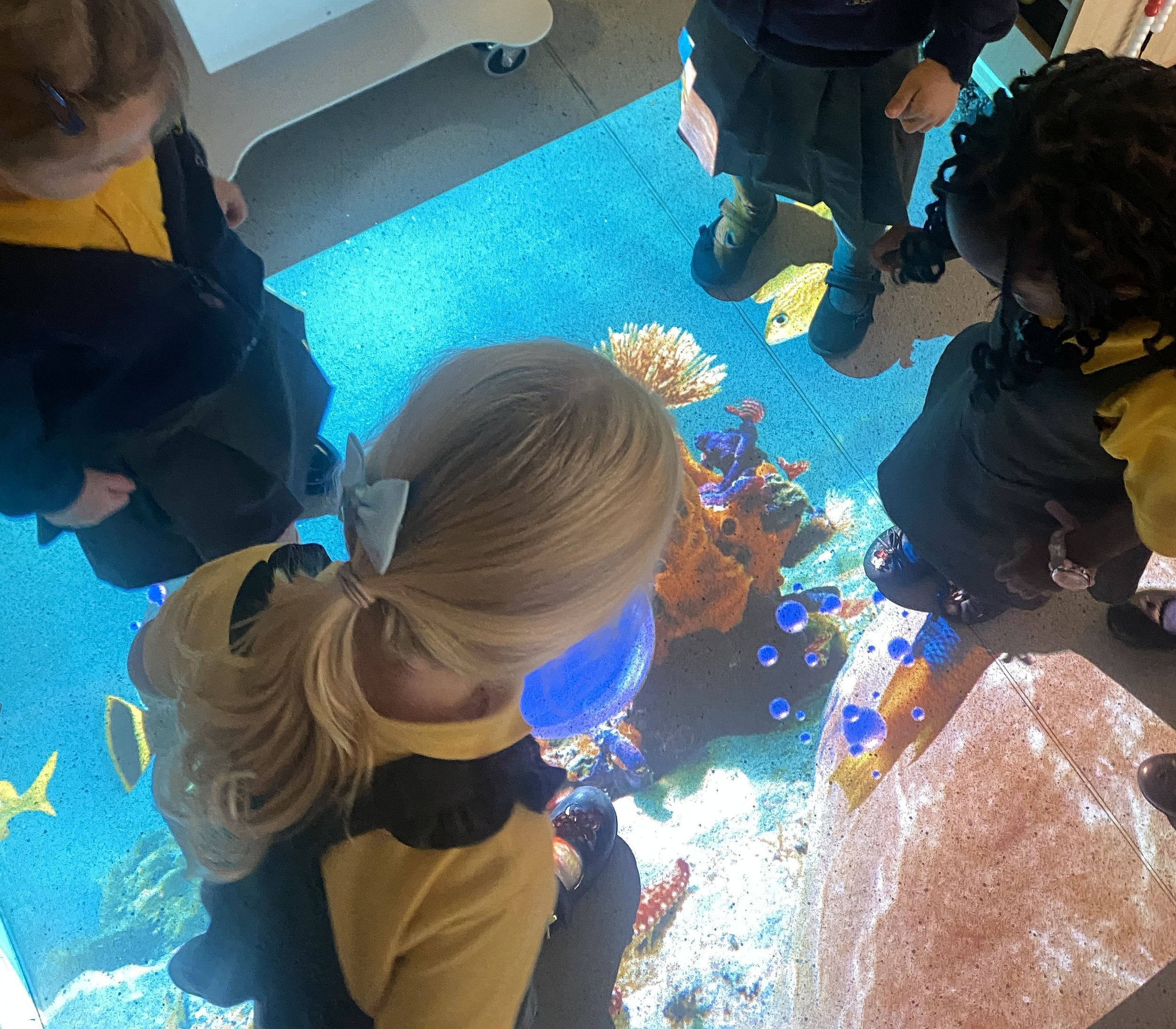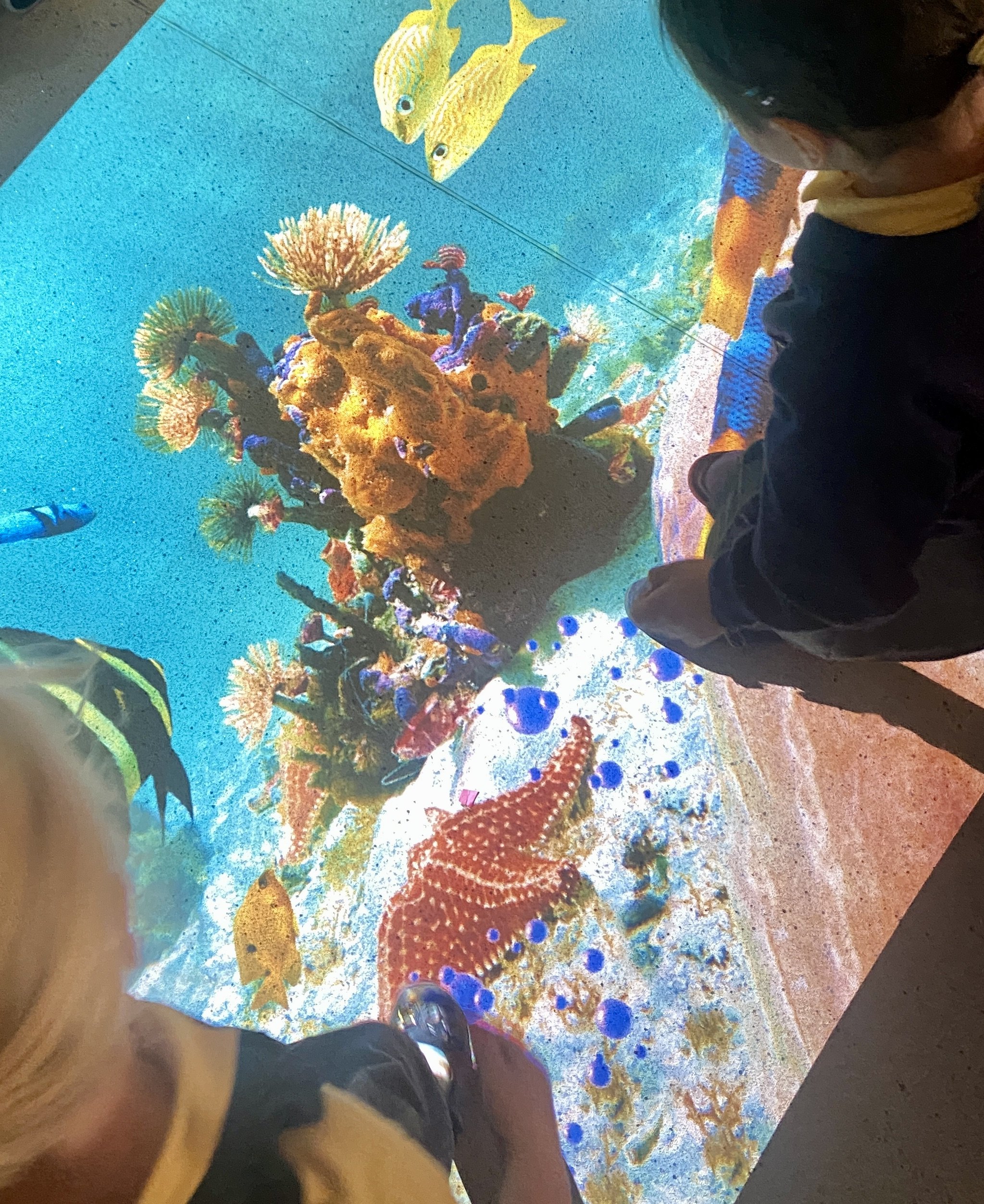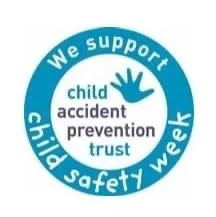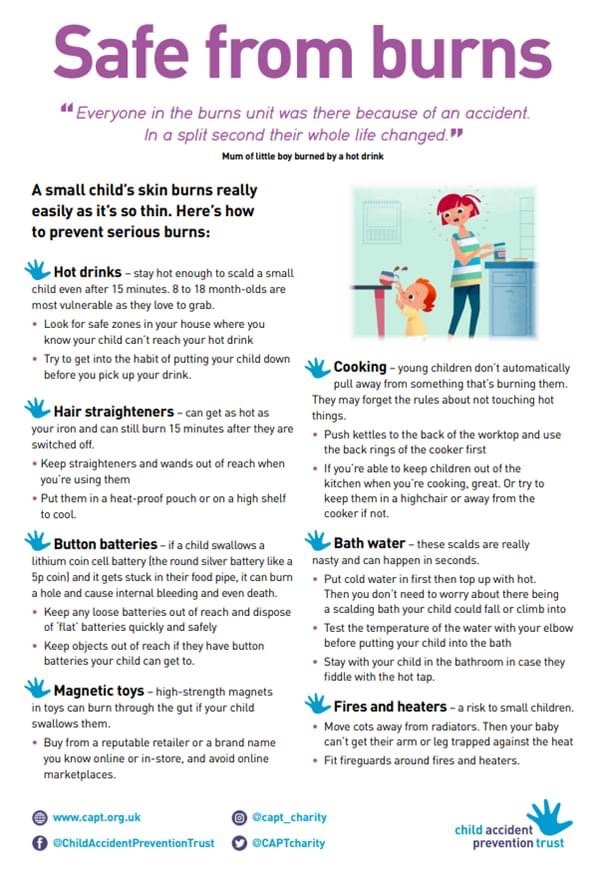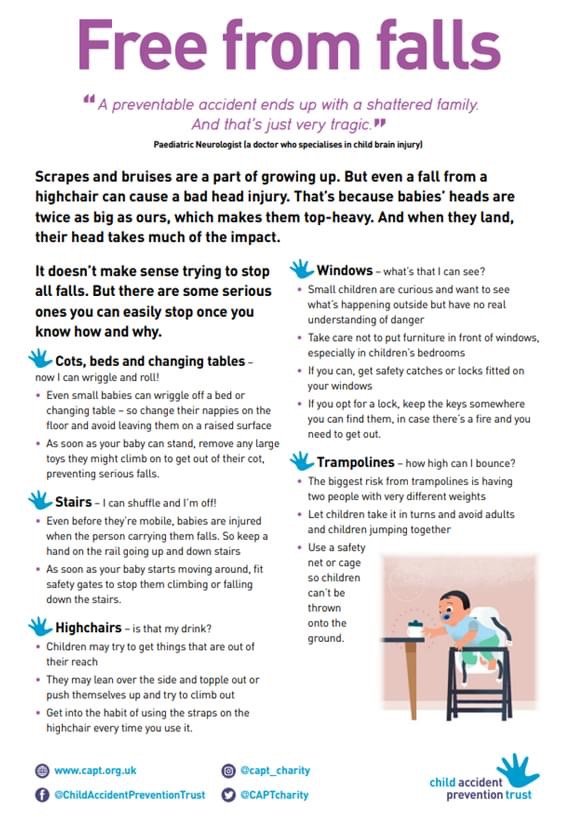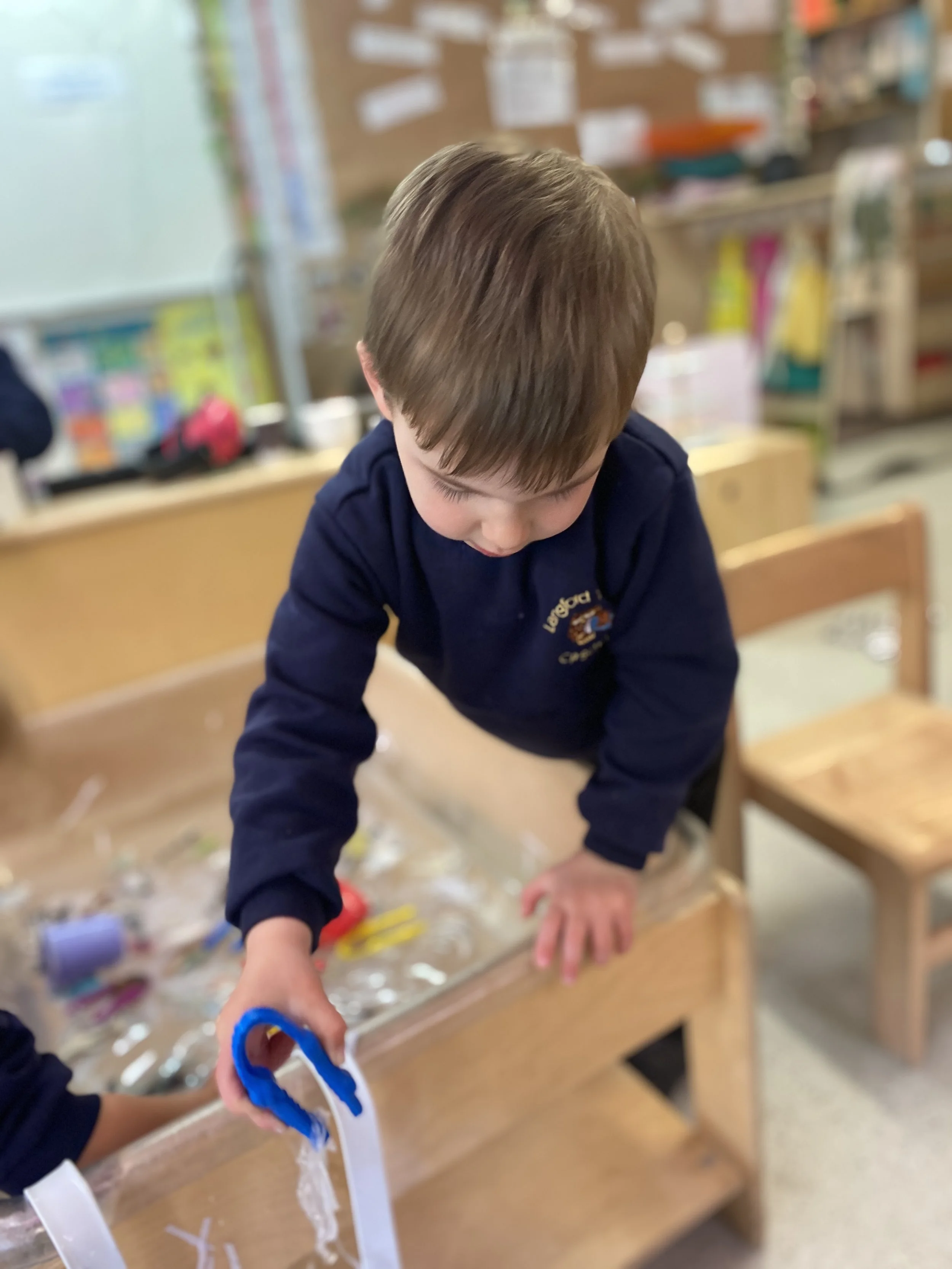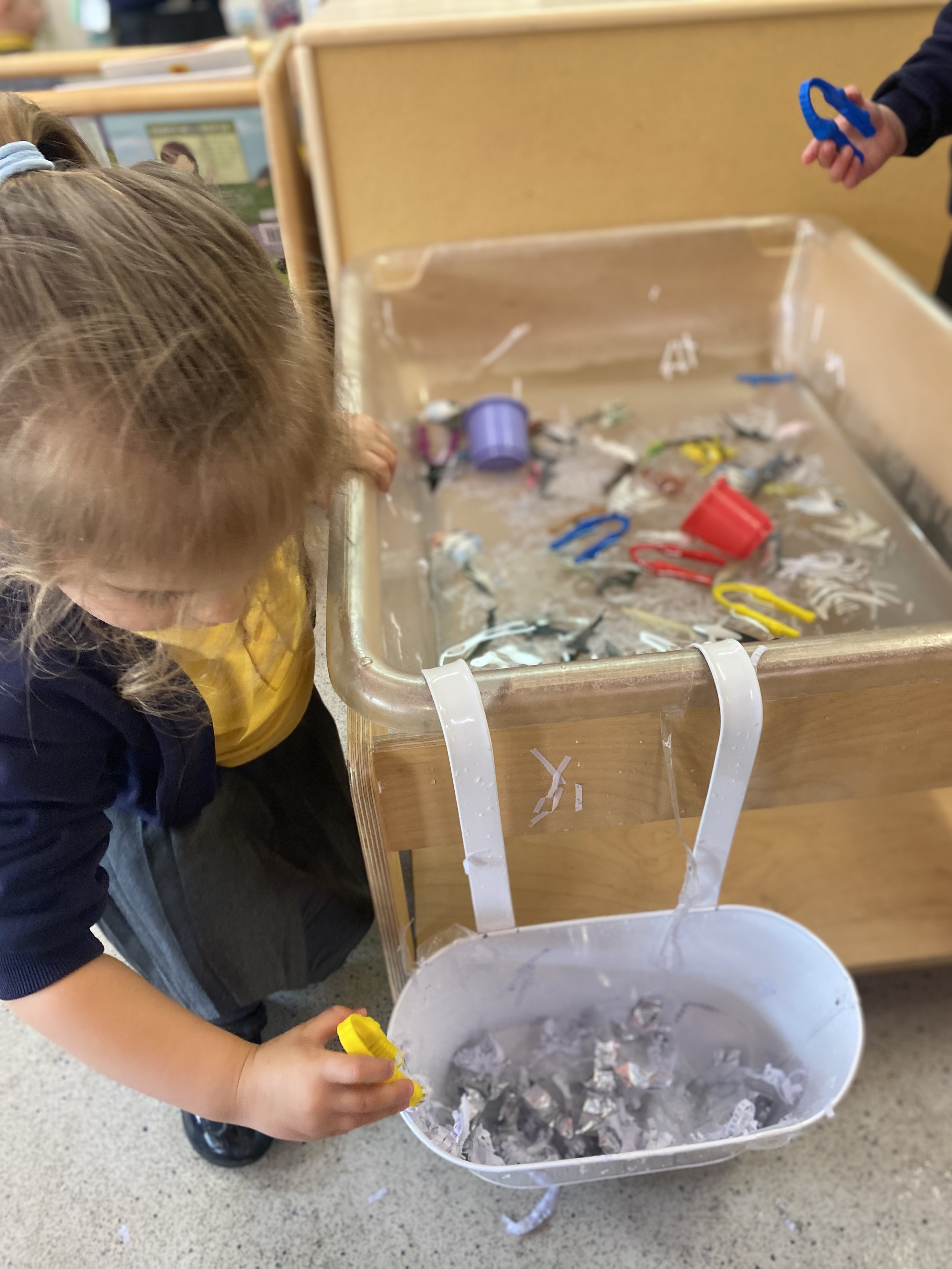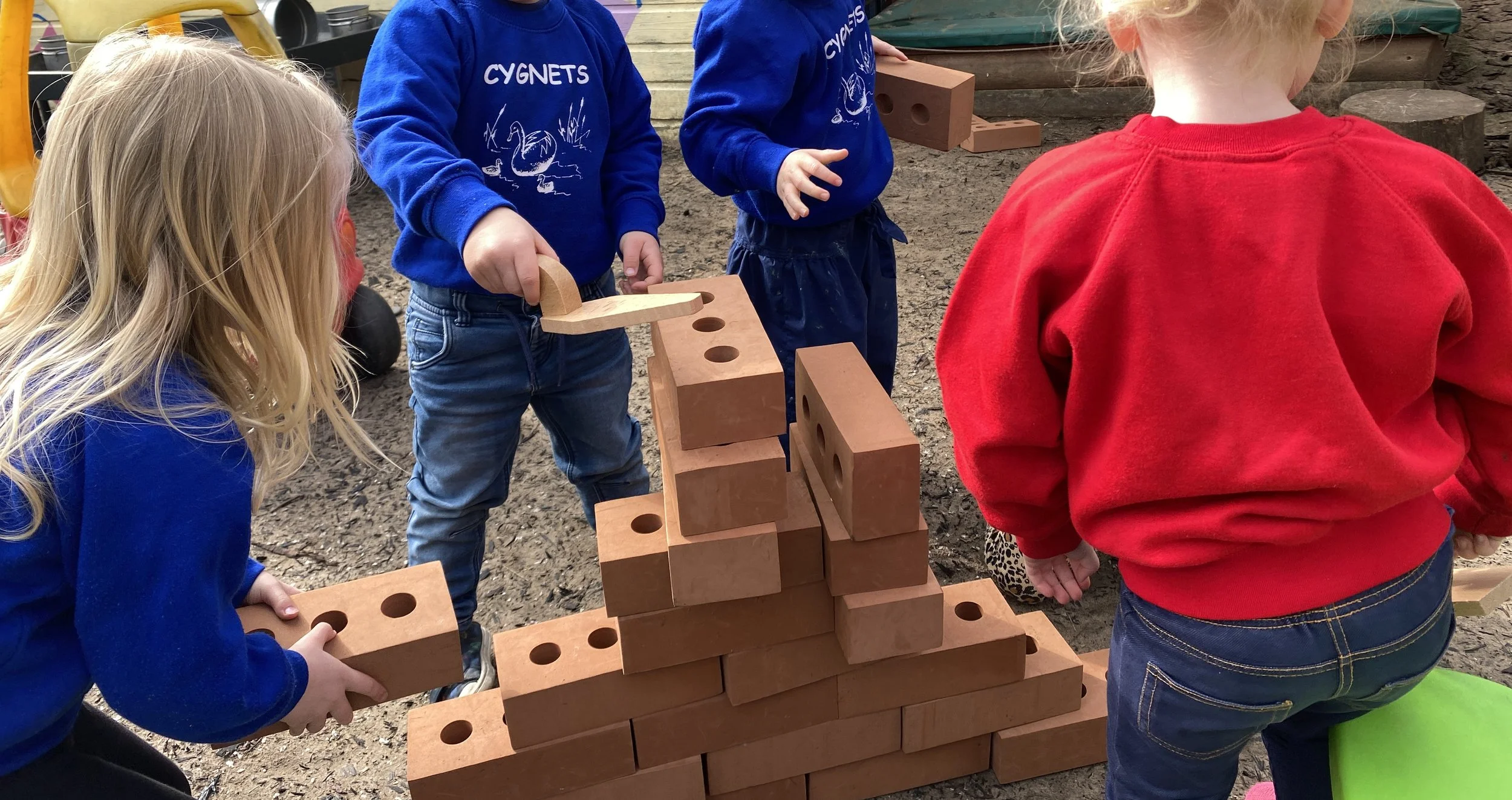Happy Diwali
Diwali is celebrated as a five-day New Year festival; it symbolises the triumph of good over evil, light over darkness and new beginnings. Houses are lit by Divas – small clay pots containing a little oil and a wick (a tea light can replace the oil) – and Rangoli patterns are made outside front doors, together with footprints to welcome Lakshmi, the goddess of good fortune and wealth, into every home.
Buildings and streets are decorated with lights, and there are firework displays. Homes are cleaned, new clothes worn and cards and gifts, such as sweets (mithai) and dried fruit, are exchanged.
One of the most famous legends associated with Diwali tells the story of how Prince Rama returned from exile with his wife, Sita, to his kingdom, after overcoming the 10-headed demon Ravana with the help of Hanuman, the monkey god, and his army of monkeys. People were so delighted that they lit the couple’s return with rows of lights.
We have talked about what children and their families plan to do in celebration, including any special roles the children may have, such as making Rangoli patterns or helping to make coconut burfi sweets to offer to visitors and to give as gifts.
We have also talked about how we can be kind to one another, and to make other people and ourselves happy.
Better Health Start for Life / DfE’s new campaign
Better Health Start for Life and the Department for Education have today launched a new campaign to encourage parents and carers to chat, play and read more with their children to develop their communication, language and literacy skills before starting school.
Playing with our new 'Motion Activated / Sensory and Learning Projector'
Children were given the opportunity to influence and interact with their environment through movement, exploration and collaboration. Through a variety of visuals, the children interacted by revealing fish in a Rockpool, popping bubbles to make fireworks, responding to all movements no matter how big or small, all whilst learning to be patient and take turns!
Happy Navratri!
For those throughout our community celebrating over the next 9 nights.. be safe and enjoy your celebrations🙌🏼 #HappyNavrati
Scarlet Fever / Streptococcus
Re: increase in scarlet fever and invasive group A streptococcus above seasonally expected levels
We are writing to inform you of a national increase in notifications of scarlet fever and invasive group A streptococcus (iGAS) to the UK Health Security Agency (UKHSA), above seasonally expected levels.
We would like to take this opportunity to remind you of the signs and symptoms and the actions to be taken:
Signs and symptoms of scarlet fever
Scarlet fever is a common childhood infection caused by Streptococcus pyogenes, or group A streptococcus (GAS). The early symptoms of scarlet fever include sore throat, headache, fever, nausea and vomiting. After 12 to 48 hours the characteristic red, pinhead rash develops, typically first appearing on the chest and stomach, then rapidly spreading to other parts of the body, and giving the skin a sandpaper-like texture. The scarlet rash may be harder to spot on darker skin, although the 'sandpaper' feel should be present. Patients typically have flushed cheeks and pallor around the mouth. This may be accompanied by a ‘strawberry tongue’. As the child improves peeling of the skin can occur.
Infection control advice
In schools and nurseries it is recognised that infections can be spread through direct physical contact between children and staff and through shared contact with surfaces such as table tops, taps, toys and handles. During periods of high incidence of scarlet fever there may also be an increase in outbreaks in schools, nurseries and other child care settings.
As per national Health Protection in Schools and Other Child Care Facilities guidance, children and adults with suspected scarlet fever should be excluded from nursery / school / work for 24 hours after the commencement of appropriate antibiotic treatment. Good hygiene practice such as hand washing remains the most important step in preventing and controlling spread of infection.
Bank Holiday for the State Funeral of Her Majesty Queen Elizabeth II
Bank Holiday for the State Funeral of Her Majesty Queen Elizabeth II
Achieve Oxfordshire - Healthy Lifestyle Programme
Gloji Energy is a FREE healthy lifestyle programme for children and families that supports them to lead healthier lifestyles.
Gloji Energy is fully funded by Oxfordshire County Council and accessible for children aged 4-12 years old. There will be both group and one to one sessions available, dependent on the needs of each family.
Gloji Energy isn’t about introducing your child or family to a diet, it is to provide children with 45 minutes of various physical activity whilst parents/carers learn healthy lifestyle tips and tricks which include subjects such as, regular eating patterns, portions, making and breaking habits, staying active, sleep and meal planning. There is also a 15 minute interactive activity at the end each sessions for the whole family to engage in.
Locations where Gloji Energy is being held include Oxford, Bicester, Witney, Berinsfield, Abingdon and Didcot.
Our Bicester group is being held at Jump Inc so the children would enjoy 45 minutes of free trampolining.
Families can find out more information on locations and dates of the programmes and sign up by accessing
Achieve Oxfordshire’s website: https://www.achieveoxfordshire.org.uk/services/gloji-energy
A new academic year has arrived and we cannot wait…
These first few weeks with a new cohort are amazing! we have always loved getting to know all the new personalities and quirks. Building positive relationships with families and children, by getting to know their needs, interests and foibles. By understanding children and their unique personalities, we are looking forward to tailoring their learning experiences to ensure each and everyone of our lickle peeps can achieve to the best of their abilities.
Best of luck to all our lickle ones starting the next stage of their learning journey in the Reception year.
Looking forward to seeing our returning families/children too. Let’s hope 2022/2023 academic year is a great one for all!
World Ocean Day
World Oceans Day, on June 8, is all about protecting the ocean.
A healthy planet needs a healthy ocean, but our waters face huge risks from overfishing, climate change, and plastic pollution.
Plastic water bottles, straws, and bags might be part of our everyday life. But that single-use plastic doesn't disappear when you're done with it: Most ends up in the ocean, where it can entangle animals or make them sick - Luckily, we can help and help fight pollution!
Miss Mariola read a bilingual story called ‘Sea Animals’ by Olga Ritchie in both English and Polish. The children found out about what animals live in the sea and she talked about the animal names in both English and Polish!
We have been exploring the concept of plastic pollution in the ocean in a child-friendly way. We made up a small tub of water added some plastic sea creatures and lots of shredded paper and the children had to try and remove the paper pollution using their fine motor skills - squeezing tongs to pick up and place rubbish in a bin and free the sea animals.
We have been watching non fiction short video's online of how pollution affects the ocean life and also how we can all help. We have also been reading key texts such as Barry the Fish with Fingers, Somebody swallowed Stanley and Saving Tally. All tell the story of the problem of ocean plastics through the eyes of sea creatures.
Hannah - Student Placement
Hannah - Student Placement
A warm welcome to Hannah, who is joining us for 5 weeks until 27 May. She has taught at Rugby-tots’ and is now on student placement as part of her Childrens Nursing Degree! We are very excited to have her join our team of Swans
Every child deserves the best start in life
Ofsted has today published a new strategy for the next 5 years (2022 to 2027).
Ofsted has today published a new strategy for the next 5 years (2022-2027).
The strategy sets out how Ofsted will continue its work to improve the lives of children and young people, which is more important than ever following the disruption and distress of the past 2 years.
https://www.gov.uk/government/publications/ofsted-strategy-2022-to-2027
Amanda Spielman, Her Majesty’s Chief Inspector, said:
Our strategy for the next 5 years takes account of the impact of the pandemic and raises still further our ambitions for children and learners. Ofsted’s mantra of ‘raising standards, improving lives’ has never been more important.
If the past 2 years have taught us anything then perhaps it is how resilient people can be, not least the youngest in our society whose start in life has been challenged in a way we’ve never seen before.
We recognise the outstanding work early years providers have done to help children recover what they missed, and this strategy aims to increase our support for a workforce that is so deeply devoted to what it does.
Whether it is through developing specialist training for our inspection workforce or through sharing our own insights, we will do everything in our power to help every child gain the best start in life.
The 2022–2027 strategy also includes commitments to:
accelerate the inspection cycle so that all schools are inspected by July 2025
allow more time for professional dialogue and evidence-gathering by increasing the proportion of longer inspections in education
assess all further education colleges on how well they are meeting the skills needs of the economy within the next 4 years
enhance inspections of independent schools, so swift intervention can happen where standards are poor
review social care inspections following the recommendations of the independent care review
develop and implement a new area SEND inspection framework that holds the right agencies to account for their role in the system
work with the Department for Education (DfE) to increase powers to act when children are educated or cared for in unregistered settings
improve the diversity of our staff, across grades and roles
Construction
We turned Cygnets Preschool into a building site - the children immersed themselves in construction. We have been surprised by the level of children’s interest in building so we invested in some building materials including foam bricks and bricklaying tools. Our aim is always to promote children’s and practitioners’ creativity within a rich and responsive environment.
‘How we respond to children’s interests is critical to extending their learning. We want to give them the opportunities and the chance to explore, make links and create. We never know from one day to the next what they’ll create.’
Using resources like the bricks, tools and visuals inspire children to use their imagination and creativity because they can provide endless possibilities as children explore their own lines of enquiry. Where possible we will be encouraging the children to take the lead in their learning and support them by providing new resources and provocations or introducing new ideas to extend the children’s explorations.
We turned Cygnets Preschool into a building site - the children immersed themselves in construction. We have been surprised by the level of children’s interest in building so we invested in some building materials including foam bricks and bricklaying tools. Our aim is to promote children’s and practitioners’ creativity within a rich and responsive environment.
How we respond to children’s interests is critical to extending their learning. We want to give them the opportunities and the chance to explore, make links and create. We never know from one day to the next what they’ll create.
Using resources like the bricks, tools and visuals inspire children to use their imagination and creativity because they can provide endless possibilities as children explore their own lines of enquiry. Where possible we will be encouraging the children to take the lead in their learning and support them by providing new resources and provocations or introducing new ideas to extend the children’s explorations.
The Year of the Tiger 🐯Kung Hei Fat Choi !
It is Chinese New Year and around a quarter of the world's population celebrate this festival, so we are celebrating this Spring Festival too - The Year of the Tiger 🐯
We are immersing ourselves in the festivities all this week which we hope will broaden our lickle peeps horizons and celebrate cultures and traditions that may already be familiar to many of our children and families.
We have decorated our classroom with red and gold lanterns, there will be lion/dragon dancing 🐲, dressing up in custom clothes, role play in our Chinese restaurant/take away, taking orders and serving food, mark making by copying Chinese symbols and writing characters, physical development using chopsticks to support fine motor skills and filling and emptying numbered containers with coloured rice* and there will be endless possibilities for arts and crafts and activities that cover every area of our EYFS curriculum.
*apologies if your children's hands come home slightly red, this should wash off in the bath fingers crossed🤞🥰
We will also be trying Chinese cuisine 🥢🥡– noodles, rice, soy, sweet chilli sauce and prawn crackers (we have found alternatives for those with allergies). We will also have oranges/tangerines which symbolise wealth and apples symbolising peace. The many traditions that make up this festival offer plentiful opportunities to extend our children’s knowledge and understanding of the world.
Kung Hei Fat Choi / gōng xǐ fā cái
Xin Nian Kuai Le
xīn nián hǎo
Sshin-nyen haoww
San nin hou
gōngxǐ fācái
(Happy New Year) 🎊
Get Outside
Splish, Splash…
Little bodies and minds need fresh air and exercise whatever the season. Despite children’s resilience, spending a lot of time at home in 2020 and 2021 has been difficult for them. Spending time outdoors in natural environments can help to redress the balance.
Outdoor spaces can offer everything that children really need for their physical and mental wellbeing. Even better, we know that being outdoors as much as possible is still the recommended option for everyone at this time.
Get mindful - What better way to start the day than with some outdoor mindfulness? Mornings can be stressful times in a busy family with siblings going off to school and parents prepping for work. Slow things down and get outside as soon as you can to try these mindful exercises:
Walk slowly and carefully, listening to the scrunch of leaves on the ground or the soft squelch of mud. Encourage your child to listen to the sounds that their feet make on the grass, earth or pavement.
Stand still and close your eyes, tune in to the sounds of traffic, the whistle of the wind of the patter of raindrops. Are there any birds singing? If it is cold, breathe in through your nose and out through your mouth.
Focus on deep breathing for a minute or two and watch the vapour clouds that are formed as we exhale.
Focus on a particular tree, shrub, leaf or maybe a dew-encrusted cobweb. Look carefully, noting every detail.
Get muddy - Mud is great at any time of the year. Studies have shown that muddy play supports children’s healthy immune systems and is a mindful activity, as the focus is on the properties of the mud. Observe the mud carefully and focus on what it consists of. Children may be able to spot sand, small stones, fine roots or leaf mulch. Encourage older children to look for signs of life as even in the winter some plants will be emerging.
Get meteorological - Our ever-changing weather is one of the reasons why it is always a favourite topic of conversation amongst adults. “Will it rain later? Has there been a frost? Is there snow forecast?” These are all phrases that your children will hear. A study of the sky each day offers so many opportunities for learning. Look at the shape, colour and movement of the clouds and discuss what they signify. Discover the direction of the wind by making your own windsock or look for signs that the weather is changing. For example, the way that cows or sheep are said to lie down before it rains or some plants will close their leaves on a cold day. Being curious about the weather helps our children to connect to the natural world which, in turn, stimulates an awareness of their environment and their place in it.
Festival of Light - Diwali
At Cygnets we have been colouring Rangoli patterns, we have been splatter painting on black sugar paper, storytelling and we have been making patterns with coloured rice (sorry for any stained hands!)
Diwali is the most important religious festival celebrated by followers of Hinduism. It is also called Divali, Deepavali or Deepawali and is commonly referred to as the Festival of Lights. The Festival of Lights celebrates the Hindu New Year. It is a celebration of the victory of light over darkness and the triumph of good over evil. This festival can last up to five days. Diwali takes place every year in late October or early November depending on the cycle of the moon. The festival starts two days before the new moon comes up. The name Deepavali originates from the ancient Indian Sanskrit language and means 'row of lights'. 'Dipa' means 'Light' and 'avali' is the word for ‘row’. There are various legends that refer to the festival. They traditionally involve the Hindu gods Rama, Lakshmi or Krishna. They all celebrate the victory of the good over the evil and this festival is a celebration of hope, happiness and peace. Originally Diwali was celebrated as a harvest festival in India, but today Diwali is celebrated as the Festival of Light by Hindus all over the world. This festival is celebrated with sparklers, firecrackers and fireworks are held in many places. At Diwali, it is tradition to decorate and illuminate the homes, visit the local temple for prayers and share meals with families and friends. Children get small gifts and sweets. Traditional Diwali food includes sweets such as the delicious syrupy gulab jamun balls and other Indian sweets. Lighting candles, oil lamps and sparklers are the main customs at this festival. Indians light diyas which are candleholders or clay lamps that are used for decoration. Homes and buildings are also decorated with rangoli decorations made with flowers, coloured sand or even coloured rice, flour or spices. Statues of Lakshmi, the four-armed Hindu goddess of prosperity, and of Ganesha, the Hindu lord of success usually referred to as the 'Elephant God', are also cherished and decorated with flowers in many homes. Larger Diwali celebrations outside India take place in Singapore's Little India district as well as in London and Leicester/UK, Sydney/Australia and Toronto/Canada where some main roads are decorated with lights and the Hindu community gathers and showcases Indian traditions, crafts and Indian food at fairs and festival grounds. Sikhs, Jains and Buddhists also celebrate the new year with a festival of light on these dates but have different legends and traditions referring to the event.
We hope you have enjoyed our Diwali Facts and we would like to wish all our friends who celebrate the Festival of Lights: "May the divine light spread hope, happiness, health and prosperity! Happy Diwali!" from all of us at Cygnets Preschool.
Our Story Mural
Look at our beautiful story mural. It is very bright and colourful and a lovely theme for our lickle peeps…
